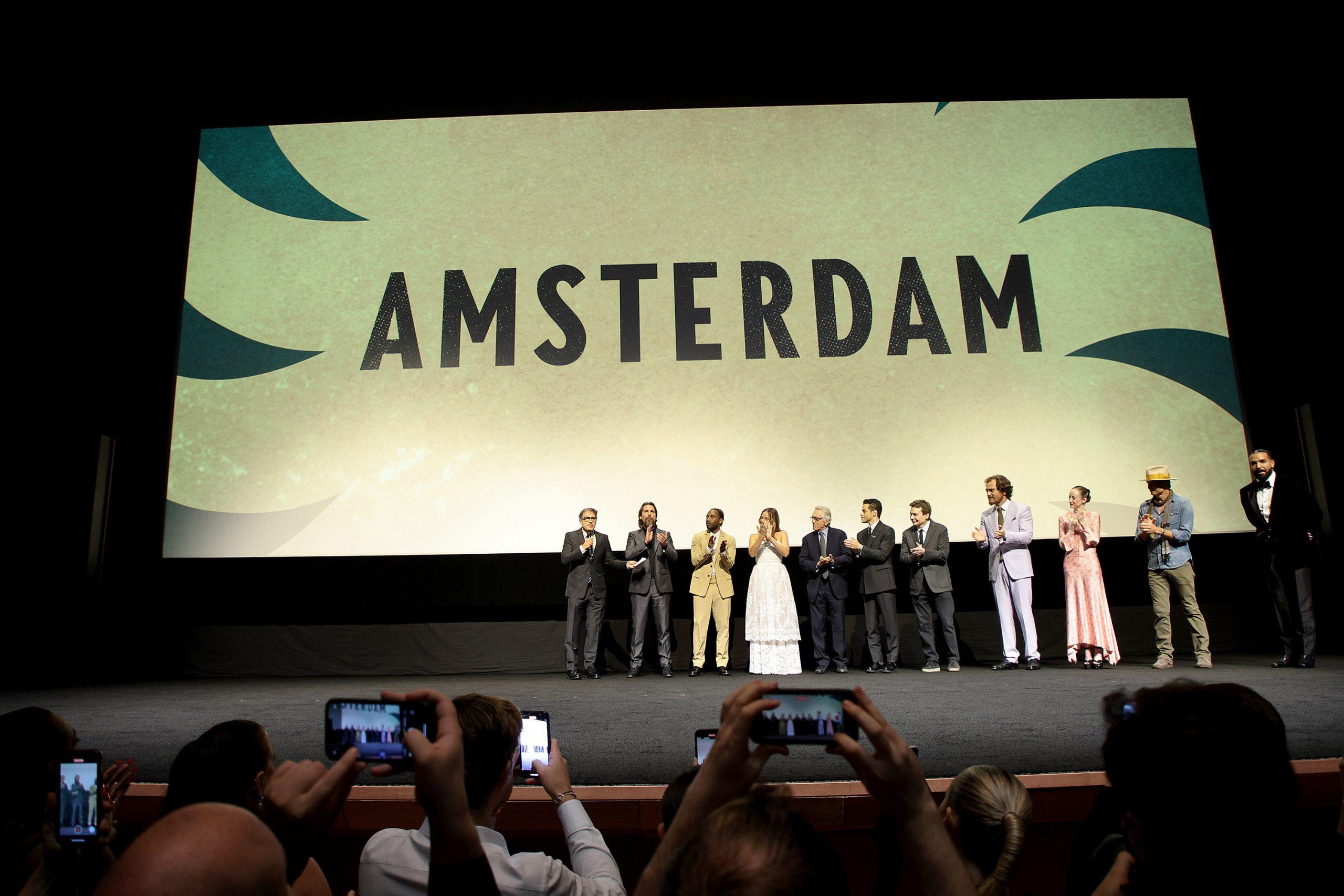20th Century Studios’ mystery-comedy “Amsterdam” gets off to a questionable start, but overcomes a lack of nuance to become a good movie.
“Amsterdam” is a period piece set in 1933 during a time of great political upheaval in the United States. The plot is based on a true story and follows three friends: Burt Berendsen, played by Christian Bale, Valerie Voze, played by Margot Robbie and Harold Woodman, played by John David Washington.
The unoriginality in “Amsterdam,” which was released in theaters on Oct. 7, is most obvious when it comes to the narration.
This movie falls into the same tropes of many other cheesy comedies because its use of narration is too direct and has no personality. This is not to say using this in movies is bad, but the voiceover narration featured in films and television series doesn’t have to be the enemy of subtext.
Subtext is important. Everything doesn’t have to be said outright, and everything definitely doesn’t have to be repeated.
At one point in the film, Voze, who is a nurse, said that “history will repeat itself.”
Despite the cheesy line, I do agree with Voze because this movie repeats itself over and over.
There’s something I like to call “unnecessary line syndrome.” This refers to a line that conveys the same information as a previous line from the film.
Taylor Swift’s character, Liz Meekins, suffers unnecessary line syndrome throughout the movie. An example is the restaurant. She repeats the name of the restaurant several times. Berendsen and Woodman get it. They’ve probably even been there before.
Despite Swift’s stumbles, it is ultimately the film’s overall cast that keeps the narrative going, specifically Bale and Robert De Niro, who plays General Gil Dillenbeck.
While nearly everyone is perfectly casted, Bale and De Niro are the two heavyweights of the film.
Despite the gimmicky narration, Bale was able to sell it for the most part. More importantly, he sold the movie with his character’s lovable neurosis and a gift for physical comedy. Berendsen’s friendships form the core of the film, with the drama coming from his potential relegation to a third wheel when his best friends Woodman and Voze find romance.
Berendsen and Woodman’s friendship provides much of the comedy of the film, but the humor conceals a growing tension between the two. Berendsen’s loveless marriage to Andrea Riseborough’s Beatrice Vandenheuvel is one of the great mysteries of “Amsterdam,” perhaps even more than the conspiracy at its center.
It is established that Beatrice’s father is well-known and pulls many strings for Burt, but it is not clear why Burt fell in love with a woman who shows almost no visible affection for him until he finds a female friend in Zoe Saldaña’s Irma St. Clair.
The cluttered cast and wary reviews of “Amsterdam” left me concerned that I wouldn’t be able to follow the film. However, while it is complicated, the plot is easy enough to understand.
What makes it so simple is that for most of the film there is a clear antagonist for audiences to focus on: Timothy Olyphant’s red-faced man.
As Voze, Robbie has the same “brilliant but nuts” (a label stuck on her by Burt) energy that made Harley Quinn enough of a standout in “Suicide Squad” to land her the starring role in “Birds of Prey.” Performances from Rami Malek and Anya Taylor-Joy as Tom and Libby Voze similarly shine, as do Mike Myers and Michael Shannon.
“Amsterdam” emphasizes the popularity of genre-bending, of which director David O. Russell is certainly no stranger to. However, the dramedy in this film feels more finely tuned than it did in his Academy Award-winning “Silver Linings Playbook” thanks to the balance of comedy and genuine heart.
Russell is also no stranger to controversies. The allegations surrounding him caused “Amsterdam” to be under intense scrutiny, which contributed to the public’s general wariness about the film.
Overall, “Amsterdam” is a delightfully entertaining mystery-comedy. It could just serve to be a little less heavy-handed with its messaging.




